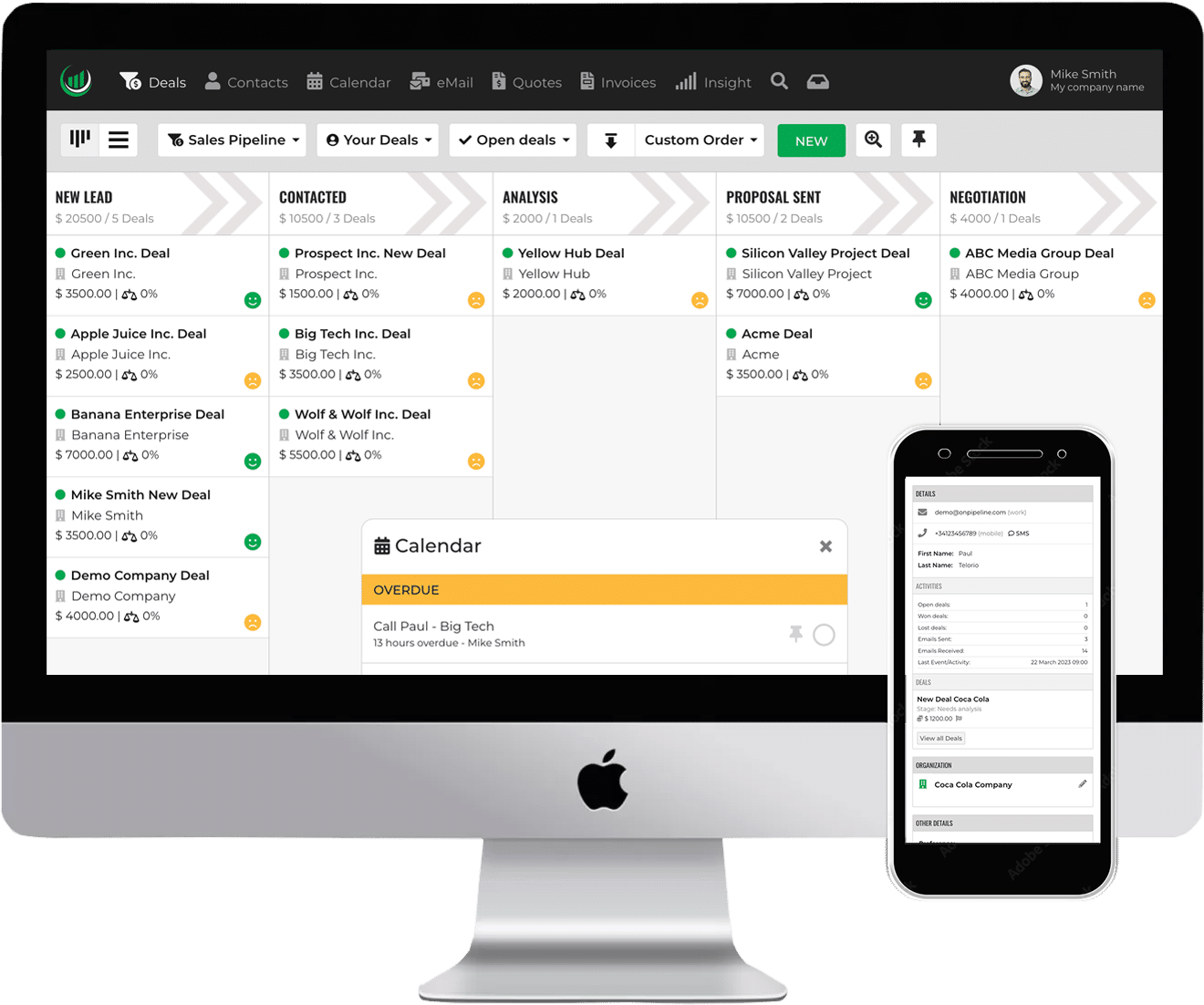The solution lies in the Power of Personalization. Tailoring interactions and offers builds trust, fosters relationships, and closes more deals. CRM systems are essential for implementing these personalized strategies. By leveraging CRM data and insights, sales teams can develop targeted, customized approaches that resonate with their audience.
This article explores the impact of personalization, the limitations of generic pitches, and how CRM can revolutionize your sales approach.
The Problem with the Generic Pitch
Despite the clear advantages of personalization, many sales teams still rely on generic pitches. These one-size-fits-all strategies often fail to connect with prospects, leading to low conversion rates and missed opportunities.
The pitfalls of one-size-fits-all sales are numerous. Generic pitches lack the specificity needed to address individual customer pain points, making them less effective in capturing interest and driving engagement. Prospects quickly recognize when they receive a canned message, which can diminish trust and reduce the likelihood of a positive response.
According to a 2022 Salesforce report, 73% of customers expect businesses to know their specific requirements and expectations, highlighting the demand for personalized interactions.
The disconnect between sales and customer needs is a common issue. Without a clear understanding of what each customer values or struggles with, sales teams are essentially shooting in the dark. This lack of alignment means that generic pitches often miss the mark, failing to demonstrate how a product or service can solve the unique challenges faced by each prospect.
Consider these examples of ineffective sales pitches: a generic email that starts with “Dear Customer” and offers no specific value proposition or a phone script that makes broad claims without addressing the recipient’s particular industry or role. These approaches are unlikely to inspire action because they don’t speak to the recipient’s individual circumstances or needs.
How CRM Empowers Personalized Sales
The key to overcoming the challenges of generic sales tactics lies in leveraging data to fuel personalization efforts, and this is where an excellent list of CRM systems comes into play. These systems are a central hub for all your customer data, providing the foundation for personalized outreach.
First is leveraging a CRM database as the fuel for personalization. CRMs gather extensive customer data, including purchase history, previous interactions, and demographic information. This data is invaluable for creating detailed customer profiles that inform personalized sales strategies.
By understanding each customer’s behavior and preferences, sales teams can tailor their outreach to be more relevant and compelling.
Segmenting your audience for targeted outreach is another powerful feature of CRMs. Profiling customers based on criteria such as buying behavior, industry, or engagement level, sales teams can develop targeted communication strategies that resonate more effectively with each group.
This segmentation allows for more precise and impactful messaging, ensuring each interaction is relevant to the recipient’s needs and circumstances.
Personalization beyond names involves using CRM data to go beyond basic greetings and customize the sales experience. This could mean suggesting relevant case studies or product demos based on past interactions, offering personalized discounts or promotions, or tailoring follow-up messages to reflect previous conversations. The goal is to create a seamless and personalized journey for each customer.
The Benefits of Personalized Sales with CRM
The benefits of personalized sales approaches powered by CRM are numerous and impactful. These include the following
Increased Conversion Rates
Personalized email campaigns and outreach efforts consistently lead to higher conversion rates. According to CampaignMonitor, personalized subject lines, for instance, boost email open rates by 26%, and personalized emails can generate up to six times higher transaction rates than non-personalized ones.
This demonstrates the tangible impact of personalization on sales outcomes and highlights its positive effect on ROI and revenue.
Building Trust and Strong Relationships
Personalization helps foster a sense of value and importance among potential customers. When prospects feel that a sales team understands their needs and challenges, they are more likely to trust and engage with the brand.
Highlighting how your product or service can address their unique pain points is crucial in building these strong relationships. A CRM allows for the detailed tracking of customer interactions, enabling sales teams to tailor their communication and offer solutions that align with the customer’s needs.
Improved Sales Efficiency
CRMs streamline personalized communication through automation. Automated email sequences, for instance, can be triggered based on customer behavior, ensuring timely and relevant follow-ups. This not only saves sales reps time but also ensures that no opportunity is missed.
Sales teams can focus more on building relationships and closing deals rather than on administrative tasks, leading to improved efficiency and productivity.
Case Studies or Success Stories
Real-world examples abound of companies that have achieved significant sales success by leveraging CRM for personalization.
For instance, a SaaS company might use CRM data to identify key usage patterns among its customers and tailor its sales pitches to highlight how its software can enhance productivity based on those patterns.
Another example is a retail business that uses CRM insights to offer personalized recommendations, significantly boosting customer satisfaction and repeat purchases. These success stories serve as powerful testimonials to the effectiveness of personalized sales strategies.
Avoiding Common Personalization Pitfalls
While personalized sales strategies offer many benefits, it’s essential to avoid common pitfalls that can undermine their effectiveness.
Data Overload
With so much customer data available, there is a risk of overwhelming prospects with too much information. It’s crucial to filter and prioritize data to keep communications focused and relevant.
Overloading customers with excessive details can lead to confusion and disengagement. Striking a balance ensures that your messages are clear and impactful without becoming overwhelming.
Inauthentic Personalization
Personalization must feel genuine to be effective. Customers can easily detect when personalization is superficial or purely automated. Efforts to personalize should be thoughtful and specific to each individual’s needs and preferences.
Authenticity builds trust and ensures that personalized messages have a positive impact. Avoid using generic personalization tactics that lack a real connection to the customer’s unique situation.
Privacy Concerns
Handling customer data responsibly is essential. Sales teams must follow best practices for data privacy and comply with relevant regulations like GDPR or CCPA. Being transparent about how customer data is collected, used, and protected is crucial. For healthcare providers, a CRM tool must be HIPAA compliant.
This transparency helps build trust and reassures customers that their information is safe. Customers are more likely to engage positively when they feel their privacy is respected and protected.
(Source)
The Future of Personalized Sales with CRM and AI
Integrating artificial intelligence (AI) with CRM systems is set to revolutionize personalized sales even further.
The Rise of AI-Powered CRM: AI can analyze vast amounts of data more quickly and accurately than humans, identifying patterns and insights that can inform highly personalized sales strategies. This can significantly enhance the effectiveness of CRM systems.
Predictive Customer Insights: AI-powered CRMs can predict customer needs and behaviors, suggesting optimal communication strategies and offerings. This allows sales teams to proactively address customer needs rather than reacting to them after the fact.
Building a Personalized Sales Journey with CRM and AI: The future of sales lies in creating a seamless and personalized journey for each customer. AI and CRM systems working together can provide a comprehensive view of the customer, enabling highly targeted and effective sales strategies that adapt in real time to changing customer preferences and behaviors.
Conclusion
Personalization transforms sales by making interactions more relevant, engaging, and effective. It builds trust, fosters relationships, and drives higher conversion rates.
To achieve these benefits, businesses must invest in robust CRM systems that support personalized sales strategies. The insights and automation capabilities offered by CRMs are essential for modern sales teams.
To implement personalized sales strategies using CRM, start by gathering and analyzing customer data, segmenting your audience, and leveraging automation tools to streamline personalized outreach. By embracing CRM and AI technologies, businesses can stay ahead of the curve and drive lasting sales success in an increasingly competitive market.


